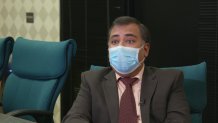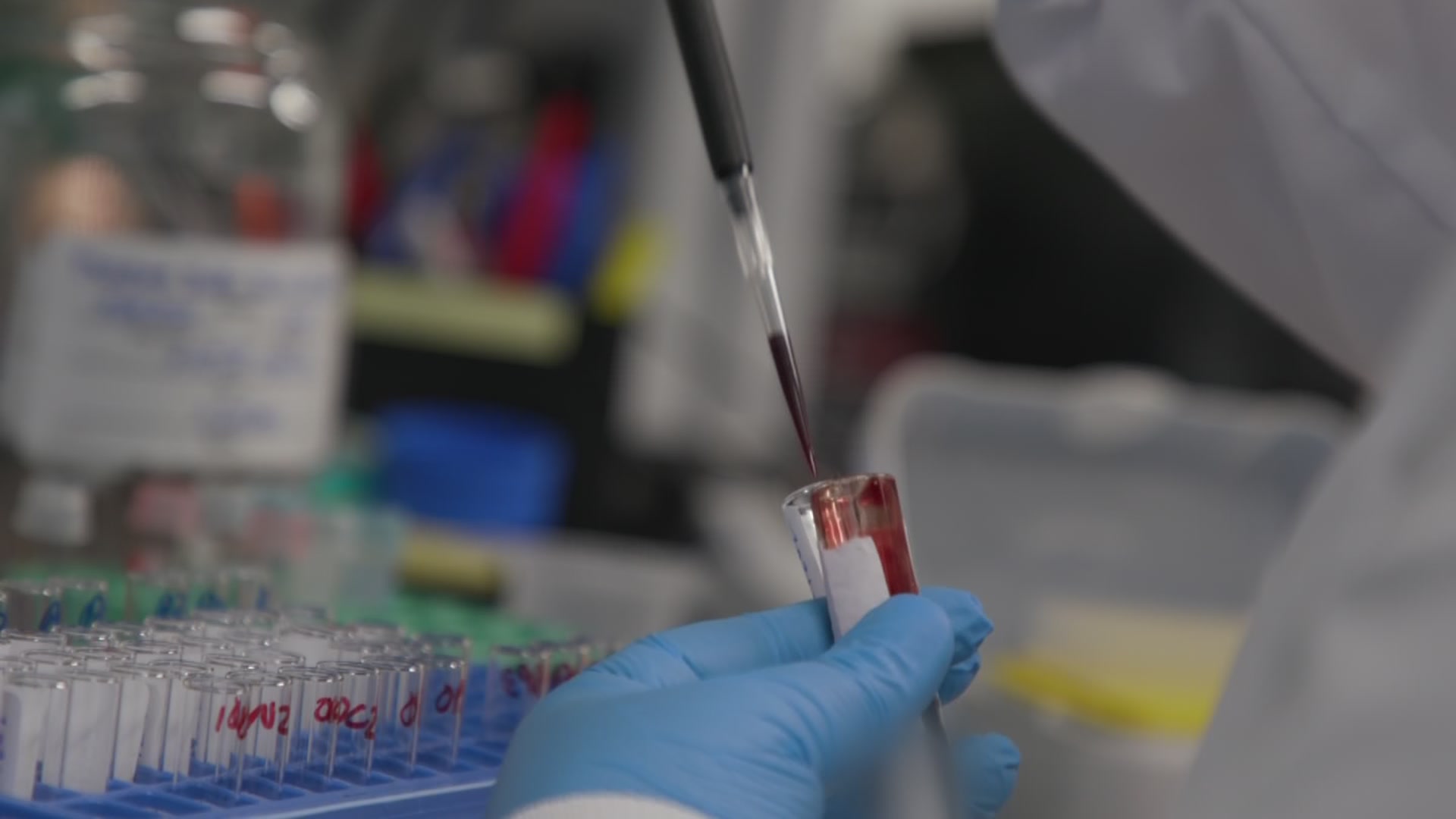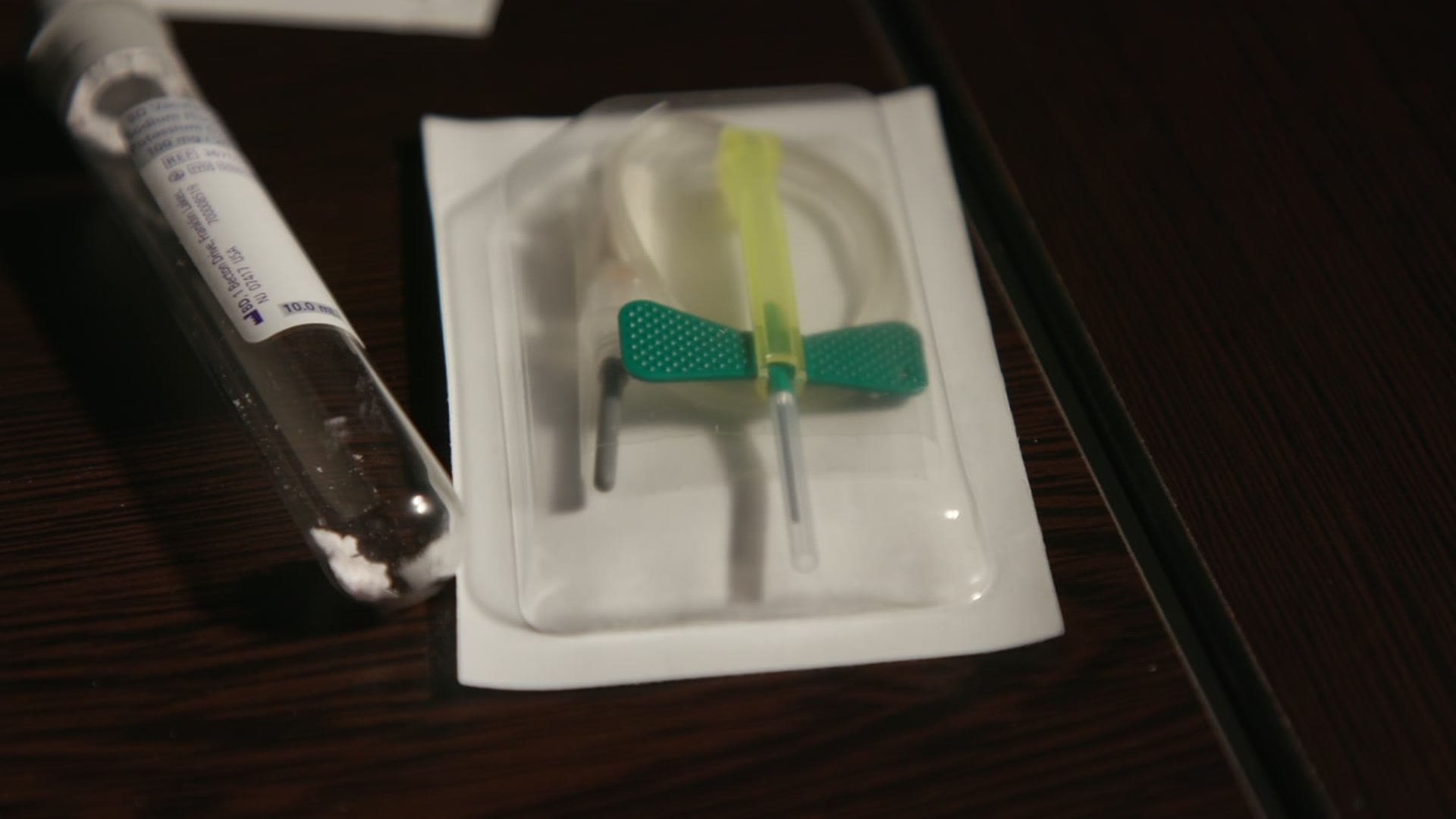An NBC 5 investigation raises new questions about whether Tarrant County put profits ahead of public health at COVID-19 vaccine clinics.
Records show the Tarrant County Public Health Department has collected millions of dollars by billing private insurance companies for administering COVID vaccines.
But some health advocates fear that practice scared some people away from county-run vaccine clinics. In order to bill, the county has been scanning and photocopying identification and insurance cards.
Many other Texas counties told NBC 5 Investigates they did not do that because they feared it would be a barrier to getting people vaccinated. In fact, among the five largest counties in Texas, Tarrant County was the only county to bill for administering vaccines.
Get DFW local news, weather forecasts and entertainment stories to your inbox. Sign up for NBC DFW newsletters.

“If it's free, why do you need insurance? Why do you need to have that documentation?” said Anelia Banda, who heads the Tarrant County Hispanic Wellness Coalition.
Banda said she believes the county's request for ID and insurance confused some in the Hispanic community who believed they needed insurance to get the shot. And she worries scanning IDs has frightened away some recent immigrants, fearful of how their information would be used.
They're not going to go to an entity that’s government-connected, to share their information, because they're scared that they could be deported.
Anelia Banda, Tarrant County Hispanic Wellness Coalition
Tarrant County’s Hispanic vaccination rate currently trails behind other large Texas counties.
Using state vaccine data and the latest census numbers, NBC 5 Investigates calculated only 38% of Hispanics in Tarrant County have received at least one dose of vaccine.
That's less than Dallas County where 47% of Hispanics have received one dose and Harris County (Houston) where 50% have received one dose.
Travis and Bexar counties have also seen higher rates – about 45% to 46% of Hispanics have received one dose. Dallas, Harris, Travis, and Bexar counties did not scan IDs and bill insurance like Tarrant County.
Dallas County told NBC 5 Investigates it believed, "collecting this information would slow down the process on-site and may discourage people from getting the vaccine."
Travis County said it chose not to ask for identification or insurance because it “didn't want to deter anyone from coming."
Tarrant County Health Director Vinny Taneja told NBC 5 Investigates that the county has always billed insurance for other vaccines, and he felt the COVID-19 shot should be no different.
If we can recoup from third-party insurances, even a tiny drop and assist in that, in my mind, that's the right thing to do.
Vinny Taneja, Director of the Tarrant County Public Health Department
Taneja said no one without insurance was denied a vaccine. He insisted his department would never share information with federal immigration officials and he does not believe scanning IDs and billing insurance caused lower vaccination rates in the Hispanic community.
“We've had a lot of discussions with the community. The biggest feedback that we've received was, again, the vaccine is not approved by the FDA,” Taneja said.
Taneja told NBC 5 Investigates he had no doubts that billing was the right thing to do and said there wasn’t even a consideration about whether his department would stop that practice.

“Why would we?" Taneja said. "I mean, that's what we do.”
But in July, Taneja’s boss, County Administrator G.K. Maenius, ordered an end to the billing.
In an email on July 14 that NBC 5 Investigates obtained through an open records request, Taneja told his staff, “Per the directive from the county administrator, TCPH (Tarrant County Public Health) will be suspending collection of insurance/billing information." The e-mail went on to say, “This is being done in an effort to reduce any barriers that may stand in the way of a person's decision to get vaccinated."
Taneja told NBC 5 Investigates he followed the county administrator’s order but did not agree with it.
“My recommendation would remain that we continue the practice because we don't think that was a barrier,” Taneja said.
NBC 5 Investigates
Under federal rules, counties cannot bill insurance for the COVID-19 vaccine itself because it's provided free from the federal government. Counties can, however. bill insurance companies for the costs associated with administering the shots.
NBC 5 Investigates has obtained records showing Tarrant County has billed private insurance companies almost $8 million in fees for administering COVID-19 vaccines and so far the county has collected almost $3 million of that money.
Tarrant County Judge Glen Whitley said he initially thought that counties were required to bill for administering the vaccine. But when he learned it was not required and that other counties were not billing, he contacted the county administrator and asked him to put a stop to it.
When NBC 5 asked Whitley if he wished he had been aware earlier that the county was not required to bill he replied, “I think if had I been aware of it, we would have probably stopped it sooner.”

But Whitley said he did not believe that billing and collecting identification negatively impacted the county’s Hispanic vaccination rate.
“I just, I don't see any evidence of that. I think, you know, people can always try to point and send you down a path,” Whitley said.
Whitley and Taneja said they believed vaccine hesitancy stems more from misinformation people read on social media.
Whitley said the millions of dollars the county has collected from insurance companies will be used to get more people vaccinated.
But records show the county was not hurting for COVID-19-related funds before it began billing insurance. In fact, Tarrant County has received more than $460 million in COVID-19 aid from the state and federal governments, money other counties tapped to operate vaccine clinics without billing insurance.
For example, Harris County told NBC 5 it has not billed insurance for any service related to COVID-19 because those services are being reimbursed through those federal and state funding sources.

Pandemic response expert Syra Madad, a former official with the Texas Department of State Health Services, said if counties are going to bill insurance and scan identification cards there should be widespread community messaging about how that information will be used.
“Certainly, I think these are barriers when people hear, 'OK, well I don't have an ID, I don't have an insurance card,'” Madad said.
She said eliminating even perceived barriers is key because achieving higher vaccination rates among all communities is essential to protecting everyone’s health.
We're all living in the same community, in the same nation, so it doesn't matter whether you are an immigrant or not. It's about protecting everyone.
Syra Madad, pandemic response expert
Even though Tarrant County has stopped billing, Taneja told us his staff continues to photocopy identification cards at vaccine clinics. Taneja said they need that information to register people in the state's vaccine record system.
But other large counties have simply asked people for their name and address and looked at their ID cards to verify who they are without copying their IDs.
Banda, the Hispanic Wellness Coalition leader worries some will still be scared away.
“It just blocks any good that you can do out of a free service,” Banda said.
Banda points out there is already distrust of local government in some immigrant communities. In Tarrant County, the sheriff participates in a program where the county jail cooperates with federal authorities to deport undocumented people.
But Tarrant County health officials told NBC 5 Investigates they would never share vaccine-related information with the sheriff or any other law enforcement agency.
Asked if he had any regrets about collecting IDs and billing insurance, Taneja said he does not and that the billing was intended to help protect his department’s finances.
“Not at all. I mean, you know, I learned the hard way back in like 2009-10 timeframe when the market and the economy sort of tanked. A lot of public health departments were caught in this,” Taneja said.



